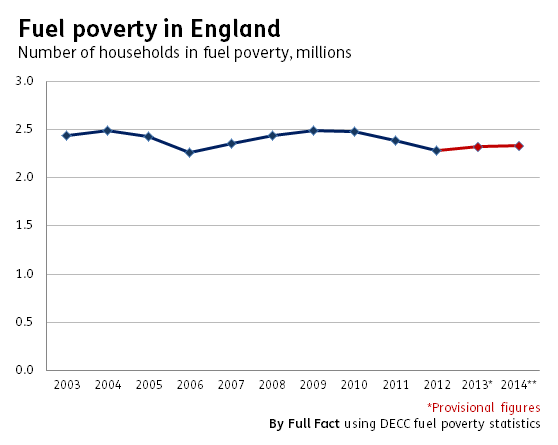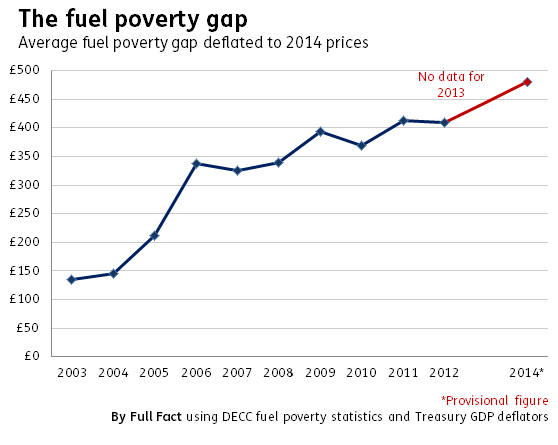Fuel poverty affects fewer households in England, but the burden is growing
Announcing a number of measures including a new target on fuel poverty, Ed Davey, the Secretary of State for Energy and Climate Change, said that "since 2010 the number of households in fuel poverty in England has fallen every year". Shadow Secretary Caroline Flint seemed to disagree, saying "that fuel poverty is getting worse under David Cameron".
A household is considered to be in fuel poverty if the cost of reaching an "adequate standard of warmth" for its home is more than average, and if paying these costs is enough to push it below the official poverty line.
As we found last month, the number of fuel poor households fell in 2010-2011 and 2011-12. Provisional estimates for 2013 and 2014 show a slight rise for the following two years, so if those forecasts are met the Secretary's claim will no longer apply.
Join 72,953 people who trust us to check the facts
Sign up to get weekly updates on politics, immigration, health and more.
Subscribe to weekly email newsletters from Full Fact for updates on politics, immigration, health and more. Our fact checks are free to read but not to produce, so you will also get occasional emails about fundraising and other ways you can help. You can unsubscribe at any time. For more information about how we use your data see our Privacy Policy.
But for households in fuel poverty, the amount they're paying above what's considered reasonable is on the rise.

